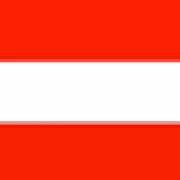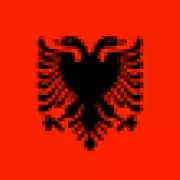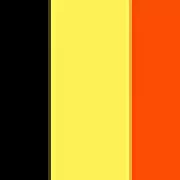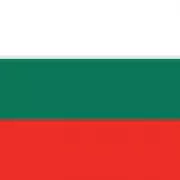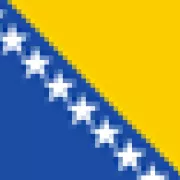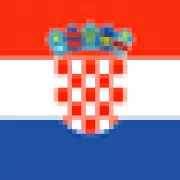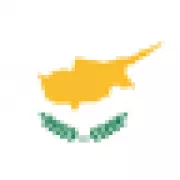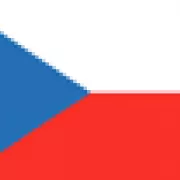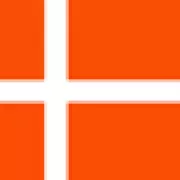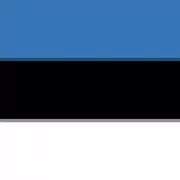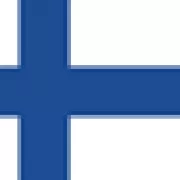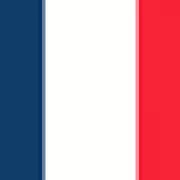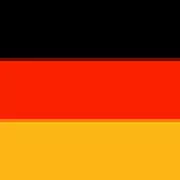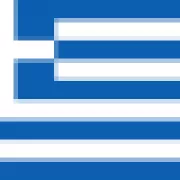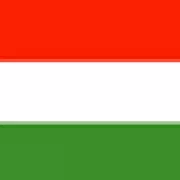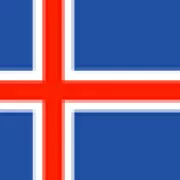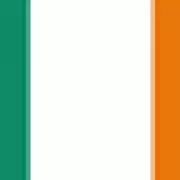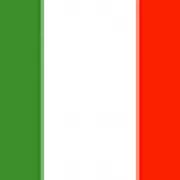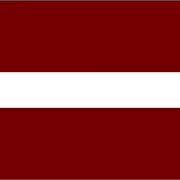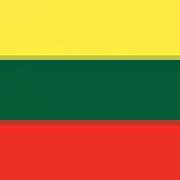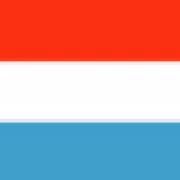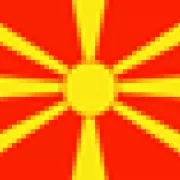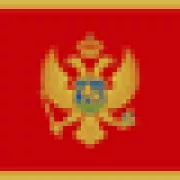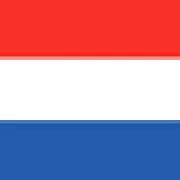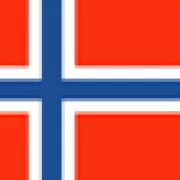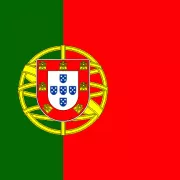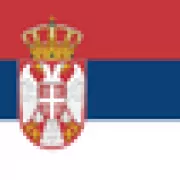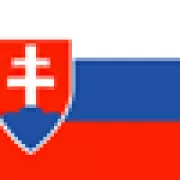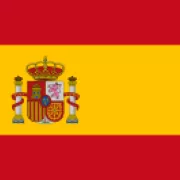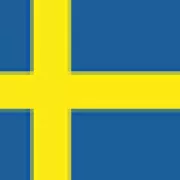Nationale coördinatoren voor volwasseneneducatie
De EU-lidstaten en andere samenwerkende landen wijzen nationale coördinatoren aan om hun samenwerking bij de uitvoering van de nieuwe Europese agenda voor volwasseneneducatie en de relevante initiatieven van de Europese vaardighedenagenda te vergemakkelijken. Hun werk draagt bij tot de bevordering van volwasseneneducatie in hun respectieve land, het verstrekken van beleidsadvies en het verzamelen en verspreiden van beste praktijken onder de nationale autoriteiten. Elke nationale coördinator stelt een werkprogramma op met de specifieke acties die zijn organisatie zal ondernemen om de nieuwe Europese agenda voor volwasseneneducatie en de relevante initiatieven van de Europese vaardighedenagenda in zijn land uit te voeren. Het Erasmus+-programma van de Europese Unie ondersteunt deze uitvoering met een specifieke subsidie.
Door op een vlag te klikken, krijgt u toegang tot de contactgegevens van de huidige nationale coördinatoren en informatie over hun werkzaamheden.
National coordinators for Adult learning - Oostenrijk
Minoritenplatz 5, 1014
Wenen, AT
Phone: +43153120-0
E-mail: ministerium@bmbwf.gv.at
Website: https://www.bmbwf.gv.at/
Afdeling Volwassenenonderwijs:
Ms Doris WYSKITENSKY-Project Manager-Coördinator
National coordinators for Adult learning - Albanië
Rr. Mustafa Lleshi, Godina e Thesarit, 1001
Tirane, AL
Phone: +3554237087
E-mail: info.akafp@akafp.gov.al
Website: https://akafp.gov.al/
Nationaal agentschap voor beroepsonderwijs en -opleiding en kwalificaties:
Mr. Ejvis GISHTI-Director-Coördinator
National coordinators for Adult learning - België (FR)
Bvd Léopold II, 44, 1080
Brussel, BE fr
Phone: +322413.26.28
E-mail: AEAA@cfwb.be
Website: https://www.federation-wallonie-bruxelles.be/
Direction des Relations Internationales:
Ms Michèle MOMBEEK-Chargée de Mission-Coördinator
National coordinators for Adult learning - België (NL)
Koning Albert II-laan 15, 1210
Brussel, BE nl
Phone: (02) 553 97 31
E-mail: info@epos-vlaanderen.be
Website: https://langlevenleren.be/
Ms Karine NICOLAY-Project Manager-Coördinator
National coordinators for Adult learning - Bulgarije
2A Kniaz Dondukov Blvd, 1000
Sofia, BG
Phone: +359 2 92 177 44
E-mail: press_mon@mon.bg
Website: https://www.mon.bg/en/100000
Directoraat Beroepsonderwijs en Traning:
Ms Valentina DEIKOVA, Ms Vania Tividosheva, Ms Maria Todorova, Ms Zhuliyan Gochev Ms Radostinka Vasileva
-State Expert-Coördinator
National coordinators for Adult learning - Bosnië en Herzegovina
Kneza Domagoja bb, 88000
Mostar, BA
Phone: (0)51430710
E-mail: info@aposo.gov.ba
Ms Biljana Popovic-Adviser-Coördinator
National coordinators for Adult learning - Kroatië
Garićgradska 18, 10000
Zagreb, HR
Phone: +38111 3613-734
E-mail: ured@asoo.hr
Website: https://mpn.gov.rs/
Afdeling Kwaliteitsborging:
Mr Ognjen Piljek Žiljak-Head of Department-Coördinator
National coordinators for Adult learning - Cyprus
Kimonos & Thoukididou, 1434, 2006
Nicosia, CY
Phone: +0035722800697
E-mail: isavvides@moec.gov.cy
Website: http://www.moec.gov.cy/
Mr Ioannis Savvides-Head-Coördinator
National coordinators for Adult learning - Tsjechië
Senovážné náměstí 872/25, 11000
Praag, CZ
Phone: 00420222122112
E-mail: sekretariat@npi.cz
Website: https://www.npi.cz/
Nationaal pedagogisch instituut:
Mr Jan BRUHA-Senior Expert-Coördinator
National coordinators for Adult learning - Denemarken
Frederiksholms Kanal 21, 1220
Kopenhagen, DK
Phone: +45 3392 5000
E-mail: uvm@uvm.dk
Website: https://www.uvm.dk/
Charlotte ROMLUND HANSEN-Special Adviser-Coördinator
National coordinators for Adult learning - Estland
Joc tn 9, 10144
Tallinn, EE
Phone: +372 5111794
E-mail: andras@andras.ee
Website: https://www.andras.ee/
Mrs Sirje PLAKS-Project Manager-Coördinator
National coordinators for Adult learning - Finland
P.O. BOX 29, 23
Overheid, FI
Phone: 00358 295 16001
E-mail: kirjaamo.okm@gov.fi
Website: https://okm.fi/etusivu
Vakgroep Beroepsonderwijs:
Mr Erno HYVONEN-Project Coordinator-Coördinator
National coordinators for Adult learning - Frankrijk
9 Rue Des Gamiins, 33000
Bordeaux, FR
E-mail: aefa@agence-erasmus.fr
Website: https://agence.erasmusplus.fr/programme-erasmus/outils/aefa/
Ms Berenice CAPPE-Project Manager-Coördinator
National coordinators for Adult learning - Duitsland
Robert-Schuman-Platz 3, 53175
Bonn, DE
Phone: +49 228 107 0
E-mail: agenda-erwachsenenbildung@bibb.de
Website: https://www.agenda-erwachsenenbildung.de/
Mr Johannes Georg ROSENSTEIN-Wissenschaftlicher Mitarbeiter-Coördinator
National coordinators for Adult learning - Griekenland
Andrea Papandreou Street 37, 15180
Amaroussio (plaats), EL
Phone: +30 210 3442202
E-mail: gsvetll@minedu.gov.gr
Secretariaat-generaal voor een leven lang leren en jeugdzaken:
Ms Evangelia PANTA-Head of Unit for European and International Affairs-Coördinator
National coordinators for Adult learning - Hongarije
Kalvária tér 7, 1089
Boedapest, HU
Phone: 003613039300
E-mail: szakkepzes@nive.hu
Website: https://www.nive.hu//
Ms Fruzsina LUKÁCS-Project Manager-Coördinator
National coordinators for Adult learning - IJsland
Borgartún 30, 105
Reykjavík, IS
Phone: +3545155800
E-mail: rannis@rannis.is
Website: https://www.rannis.is/
Centrum voor Onderzoek:
Mr Skúli LEIFSSON-Senior Advisor-Coördinator
National coordinators for Adult learning - Ierland
2nd Floor 83-87 Main Street Ranelagh,
Dublin 6, IE
Phone: 00353 1 406 8220
E-mail: mail@aontas.com
Website: https://www.aontas.com/
Ms Dearbháil LAWLESS-CEO-Coördinator
National coordinators for Adult learning - Italië
Corso d'Italia 33, 198
Rome, IT
Phone: +39 06 854471
E-mail: urp@inapp.org
Website: https://www.inapp.gov.it/
Mr Claudio VITALI-Project manager-Coördinator
National coordinators for Adult learning - Letland
Valnu iela 2, 1050
Riga, LV
Phone: +37167047754
E-mail: Pasts@izm.gov.lv
Website: https://www.izm.gov.lv/lv
Ministerie van Onderwijs:
Ms Laura Iveta STRODE-Senior Expert-Coördinator
National coordinators for Adult learning - Liechtenstein
Landstrasse 92, 9494
Schaan, FL
Phone: 00423 232 95 80
E-mail: stiftung@erwachsenenbildung.li
Website: https://www.erwachsenenbildung.li/de/
Ms Sabine Frei-Wille-Director-Coördinator
National coordinators for Adult learning - Litouwen
A. Volano str. 2, 1124
Vilnius, LT
Afdeling niet-formeel onderwijs:
Tomas PUTYS-Head of Division-Coördinator
National coordinators for Adult learning - Luxemburg
15, rue Léon Hengen, 1745
Luxemburg, LU
Phone: (+352) 8002-4488
E-mail: sfa@men.lu
Website: https://men.public.lu/fr/formation-adultes.html
Ms Aline Schott-Deputy director-Coördinator
National coordinators for Adult learning - Macedonië
Dimitrie Cupovski 13, 1000
Skopje, MK
Phone: +38923220808
E-mail: contact@cov.gov.mk
Website: https://cov.gov.mk/
Mr Konstantin HRISTOVSKI-Head of Department-Afdelingshoofd
National coordinators for Adult learning - Malta
Great Siege Road , 1999
Floriana, MT
Phone: 356 2598 1121
E-mail: Tom.Borg@gov.mt
Website: https://lifelonglearning.gov.mt/
Directoraat Onderzoek, Levenslang Leren en Inzetbaarheid (DRLLE):
Mandy Mifsud - National Coordinator, Tom Borg - Project Manager, Mariah Farrugia - Project Officer--Coördinator
National coordinators for Adult learning - Montenegro
Vaka Durovica b.b., 81000
Podgorica, ME
E-mail: adultlearning@live.edu.me
Website: https://www.gov.me/mps
Ms Marija DURISIC-Advisor for Adult Education-Coördinator
National coordinators for Adult learning - Nederland
Rijnstraat 50, PO Box 16375, 2515
Den Haag, NL
Phone: +31 70 214 02 14
E-mail: Secretariaat_MBO@minocw.nl
Website: https://www.rijksoverheid.nl/ministeries/ministerie-van-onderwijs-cultuur-en-we…
Directoraat Beroepsonderwijs:
Mr Joram Snijders-Policy Advisor-Coördinator
National coordinators for Adult learning - Noorwegen
P.O. Box 1093, 5809
bergen, NO
Phone: 55 30 38 00
E-mail: post@hkdir.no
Website: https://hkdir.no/
Ms Hanne CHRISTENEN-Senior Adviser-Coördinator
National coordinators for Adult learning - Polen
ul. Wspólna 1/3; 00-529,
Warschau, PL
Phone: +48 22 34 74 100
E-mail: kancelaria@mein.gov.pl
Website: https://www.gov.pl/web/edukacja-i-nauka
Vakgroep Strategie, Kwalificaties en Beroepsonderwijs en -opleiding:
Mr Stanislaw DRZAZDZEWSKI-Counsellor General-Coördinator
National coordinators for Adult learning - Portugal
Av. 24 de Julho, n.º 138, 1399-026,
Lissabon, PT
Phone: +351 21 394 37 00
E-mail: anqep@anqep.gov.pt
Website: https://anqep.gov.pt/
Ms Ana Cláudia VALENTE-Deputy Director-Coördinator
National coordinators for Adult learning - Roemenië
str. Dem.I. Dobrescu nr 2-4 sector 1, 10026
Boekarest, RO
Phone: +40213110202
E-mail: dgfm@mmuncii.gov.ro
Website: http://mmuncii.ro/j33/index.php/ro/
Beleid inzake werkgelegenheid, competenties en beroepsmobiliteit:
Ms. Ana RADULESCU-COUNSELLOR-Coördinator
National coordinators for Adult learning - Servië
Nemanjina 22-26, 11000
Belgrado, RS
Phone: +38111 3613-734
E-mail: kabinet@mpn.gov.rs
Website: https://mpn.gov.rs/
Ms Vesna Fabian-Head of the Group for dual education and NQF-Coördinator
National coordinators for Adult learning - Slowakije
Bellova 54a, 83763
Bratislava, SK
Phone: +421 911 469 793
E-mail: czv@siov.sk
Website: https://siov.sk/
Afdeling Europees Beleid:
Ms Lubica GALLOVA -Head Head of EU Policies Department -Coördinator
National coordinators for Adult learning - Slovenië
Ulica Ambrožiča Novljana 5, 1000
Ljubljana, SI
Phone: +386 1 5842 560
E-mail: info@acs.si
Website: https://www.acs.si/en
Ms Zvonka PANGERC-PAHERNIK-Head of Unit-Coördinator
National coordinators for Adult learning - Spanje
Ministerio de Educación, Formación Profesional y Deportes
Pº Prado, 28-6ª pl., 28014
Madrid, ES
Phone: +34915065661
E-mail: sg.oalv@educacion.gob.es
Website: https://www.educacionyfp.gob.es/ministerio/organigrama/ministra/sg-formacion-pr…
Ms Asunción MANZANARES MOYA-Deputy Director General-Coördinator
National coordinators for Adult learning - Zweden
Box 4002, 17104
Solna, SE
Phone: 004608 527 332 00
E-mail: euagendanvux@skolverket.se
Website: https://www.skolverket.se/
Eenheid voor educatief leiderschap en professionele ontwikkeling:
Ms AnneCatrine Uusitalo-Director of Education-Coördinator
National coordinators for Adult learning - Turkije
Emniyet Mahallesi Abant 2 Caddesi No 8 , 6560
Ankara, TR
Phone: 0312 413 21 14 - 16
E-mail: hbogm@meb.gov.tr
Website: http://hbogm.meb.gov.tr/
Directoraat-generaal Een leven lang leren:
Ms Meltem Gülnar-National Coordinator-Coördinator


